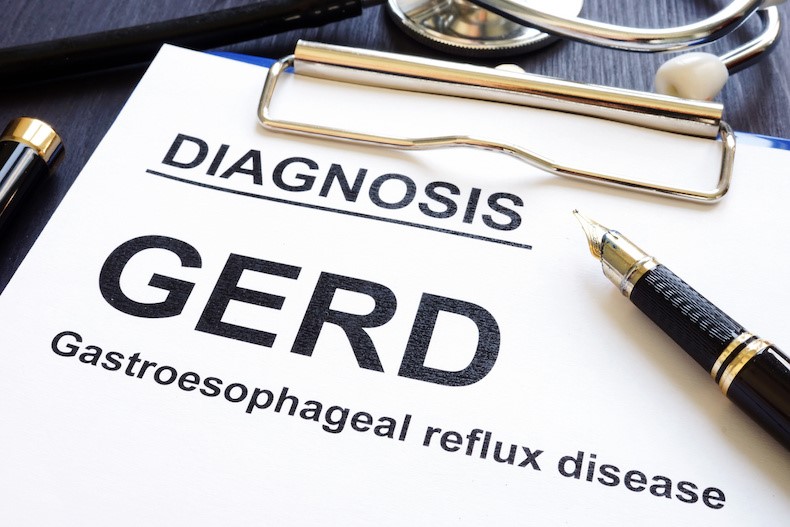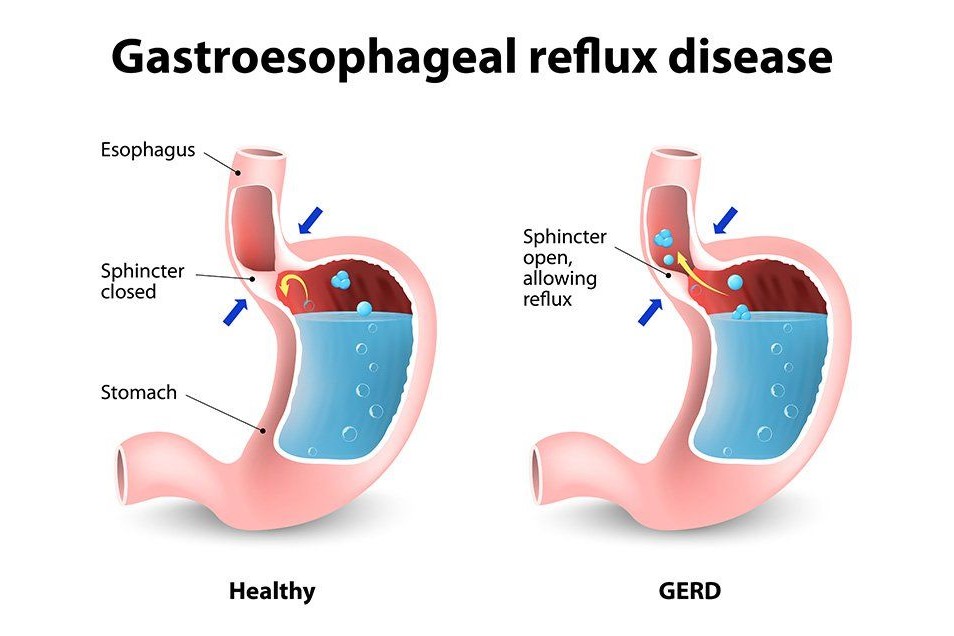
Gastroenterology: what is the difference between gastritis and GERD?
By definition gastritis is inflammation of the stomach lining (gastro = stomach, it is = inflammation). For years it was thought that gastritis and reflux (GERD) were practically the same thing
A little bit of anatomy may help explain the difference between gastritis and GERD
Where the esophagus meets the stomach there’s a sphincter (known as the lower esophageal or cardiac sphincter).
This sphincter allows food into the stomach and helps to keep food from backwashing up into the esophagus. Some reflux is normal.
When the acid irritates the lining of the esophagus the result is GERD
The symptoms of this are the classic heartburn symptoms as well as the less well known symptoms of chronic cough, voice changes, etc.
So, while GERD is related to irritation in the esophagus, gastritis is related to irritation in the stomach.
Symptoms of gastritis include eating a few bites and feeling full, nausea, bloating, and/or lack of appetite.
Gastritis can worsen to the point of causing an ulcer which has the additional symptoms of black/tarry stools and/or vomit.
Many of the causes of GERD are the same as the causes of gastritis including long term use of NSAIDs for pain relief, smoking, and excessive alcohol consumption.
On the other hand, gastritis can also be caused by H Pylori infection and can happen short term after a viral illness.
The gold standard test for gastritis is to do an endoscopy but before completing this somewhat invasive test a doctor may prefer to do a stool or breath test for H Pylori infection or may do a medication trial.
Treatment for GERD and gastritis are also often very similar but may vary for gastritis depending on the cause
The first line treatment is to decrease the stomach acid using an anti-acid, H2 blocker or proton pump inhibitor.
If a patient tests positive for H Pylori on the other hand, acid reduction may help the symptoms somewhat but anti-biotics are needed to get rid of the infection and are used along with a proton pump inhibitor.
The most important thing the scientific community has learnt from this new understanding is that if you have reflux-like symptoms and your doctor treats you for it and you improve, but perhaps not as much as you expected, or if you improve and then get worse again while still on medication, then you should go back to your doctor.
You don’t necessarily need an endoscopy early on in the treatment of your symptoms given than stool tests and medication trials can often give doctors similar information.
Read Also:
Emergency Live Even More…Live: Download The New Free App Of Your Newspaper For IOS And Android
What Is Gastro-Oesophageal Reflux And How To Treat It
Vomiting Blood: Haemorrhaging Of The Upper Gastrointestinal Tract
Pinworms Infestation: How To Treat A Paediatric Patient With Enterobiasis (Oxyuriasis)
Intestinal Infections: How Is Dientamoeba Fragilis Infection Contracted?
Gastrointestinal Disorders Caused By NSAIDs: What They Are, What Problems They Cause
Intestinal Virus: What To Eat And How To Treat Gastroenteritis
Gastrointestinal Bleeding: What It Is, How It Manifests Itself, How To Intervene



